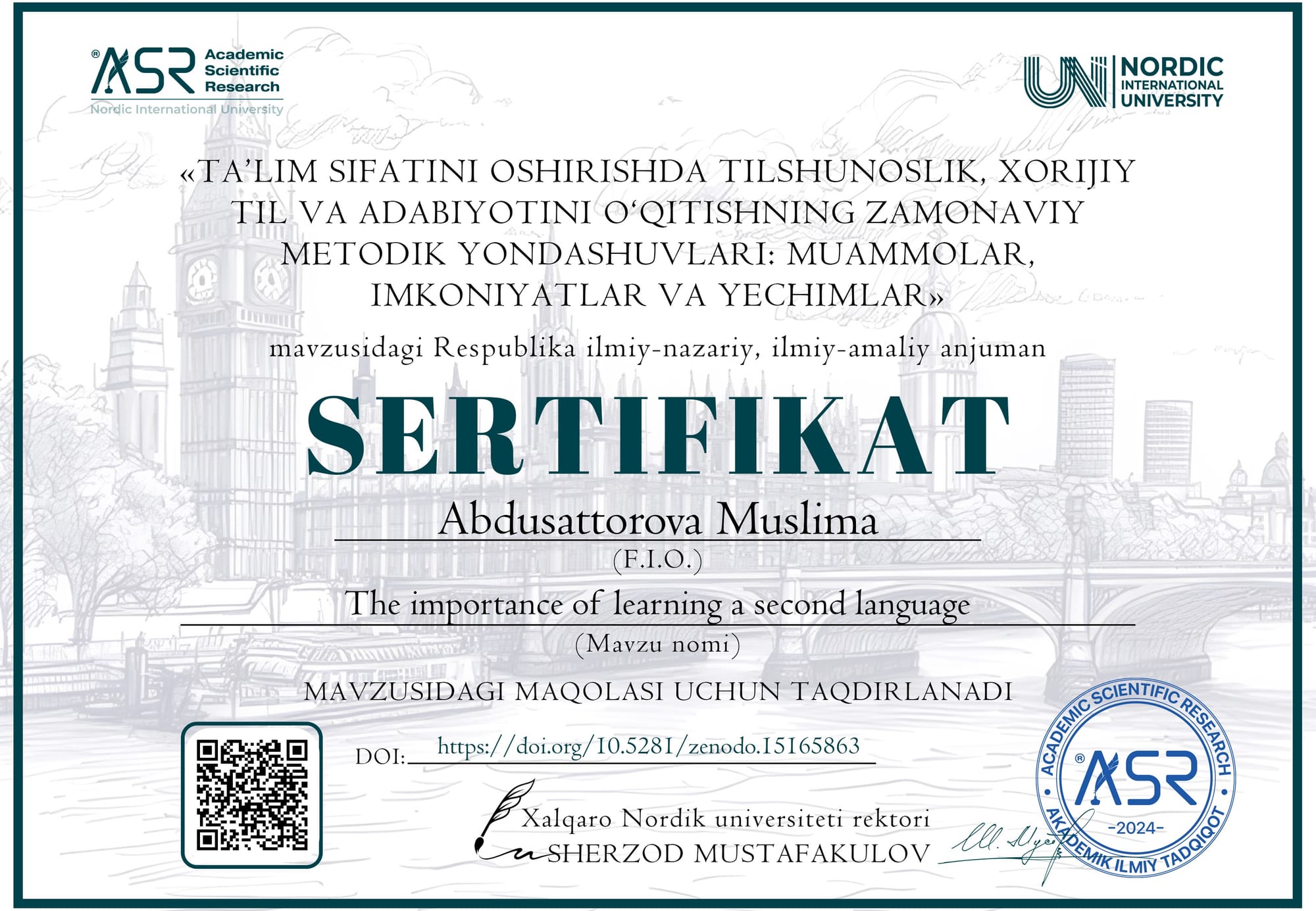Abdusattorova Muslima1

DOI: https://doi.org/10.5281/zenodo.15165863
Google scholar: https://scholar.google.com/scholar?cluster=2439658145972615482&hl=ru&as_sdt=0,5
Zenodo community: https://zenodo.org/records/15165863
Nordic_press journal: https://research.nordicuniversity.org/index.php/nordic/article/view/2232
MAQOLANI YUKLAB OLISH
SERTIFIKATNI YUKLAB OLISH
REVIEW:
“The Importance of Learning a Second Language” by Abdusattorova Muslima
This article presents a concise yet insightful overview of the benefits and challenges associated with second language acquisition. Authored by a student of Foreign Languages and Literature at Nordic International University, the paper successfully addresses both the cognitive and socio-cultural significance of learning a second language in today’s globalized world.
The introduction effectively sets the context by highlighting the increasing relevance of bilingualism in professional and academic spheres. It rightly emphasizes how second language acquisition enhances critical thinking, memory, and problem-solving abilities, while also fostering intercultural communication and empathy.
The main body of the article demonstrates a good synthesis of existing literature, citing scholars such as Gardner, MacIntyre, Dunkel, and Soyupek to differentiate between integrative and instrumental motivations in language learning. The paper also underscores real-world obstacles such as student motivation, curriculum constraints, and lack of immersive environments—issues that are particularly pertinent in the field of foreign language education.
One of the strengths of the article is its balanced approach: while celebrating the numerous advantages of language learning, it does not shy away from acknowledging the pedagogical and institutional barriers that hinder success. The inclusion of Uzbek researchers and regional perspectives adds a local relevance to the topic, aligning global theories with national discourse.
However, the article could be further improved by integrating more empirical data or case studies to support its claims. Additionally, while the language is mostly clear and accessible, there are occasional lapses in grammar and structure that could benefit from further editing for academic polish.
In conclusion, this is a thoughtful and well-organized paper that contributes to the ongoing discussion around language education. It reflects a growing awareness among students of the broader implications of linguistic skills—not only for personal development, but also for global citizenship. With some refinement, the work holds promise for future academic endeavors.



